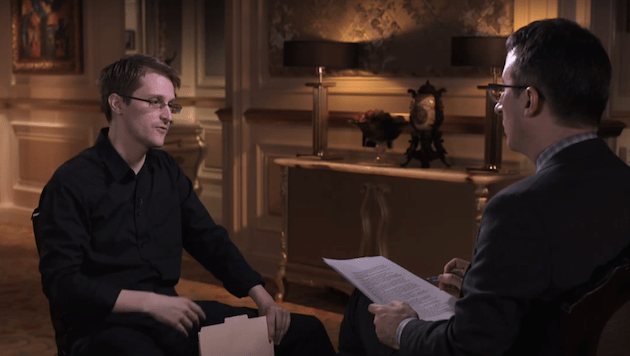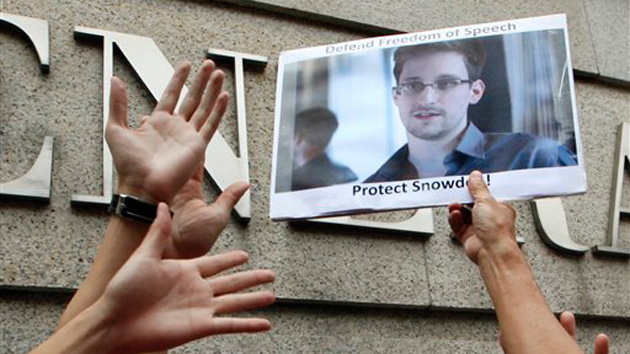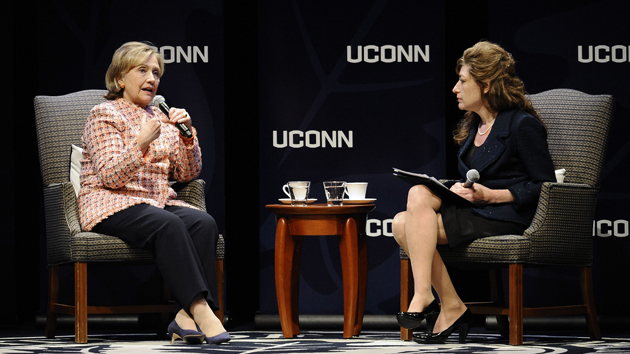
Last Week Tonight
In the latest Last Week Tonight, John Oliver traveled to Moscow for an in-depth interview with Edward Snowden, or as Oliver introduced on his show as “the most famous hero and/or traitor in recent American history.”
The segment, which started out measuring how much the NSA whistleblower missed Hot Pockets, quickly delved into surprisingly tough questions aimed at Snowden and the arguable value over his massive surveillance leak. At one point, Oliver even challenged Snowden by asking how many of the leaked NSA documents he actually took the time to read.
“I do understand what I turned over,” Snowden responded.
“There’s a difference between understanding what’s in the documents and reading what’s in the documents, because when you’re handing over thousands of NSA documents the last thing you want to do is read them,” Oliver shot back.
Throughout the rest of the episode, which was pegged to the upcoming June 1st deadline for Congress to reauthorize or end the controversial Patriot Act, Oliver repeatedly reminds Snowden that Americans don’t seem to care very much about government surveillance. But when it comes to more intimate matters, that’s a different story.
“This is the most visible line in the sand for people: Can they see my dick?” Oliver said.
“Well, the good news is there’s no program named the ‘Dick Pic’ program,” Snowden explained. “The bad news is that they are still collecting everybody’s information—including your dick pics.”
Watch the full exchange below:














